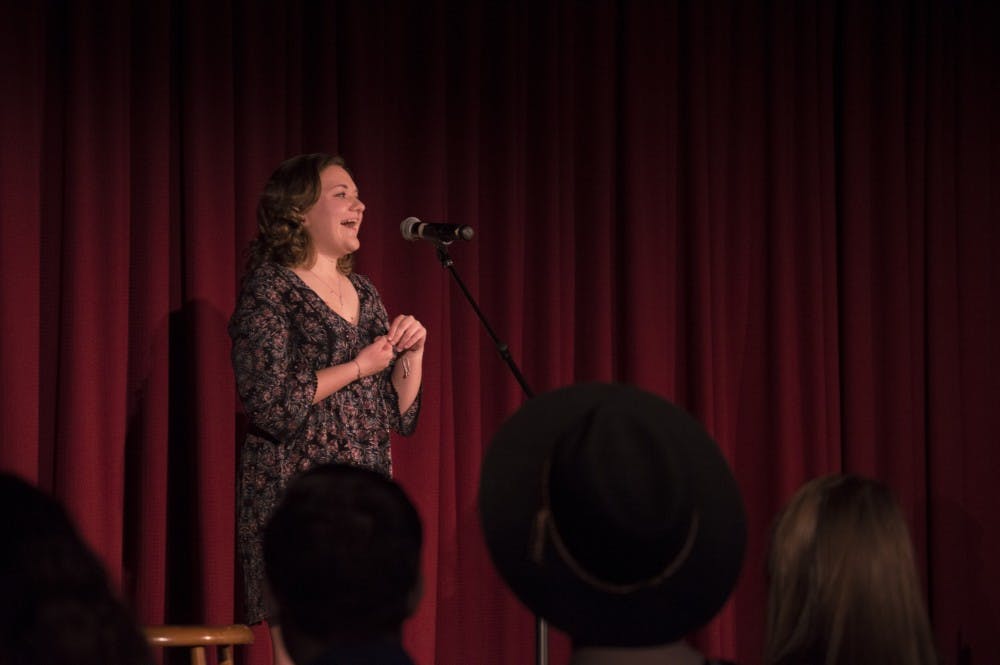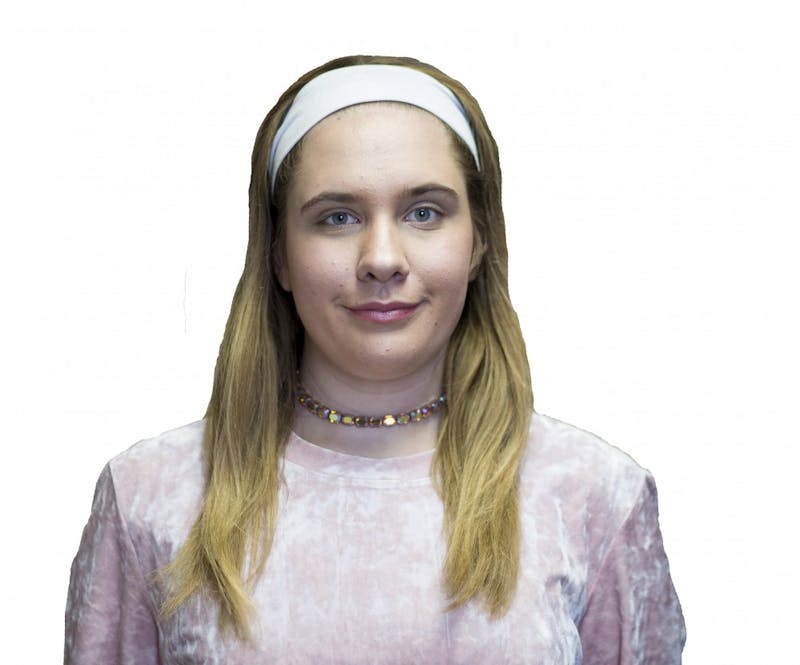Students of rural hometowns share college awakening at 'Unwritten: Crisis' story event

Infected bug bites, Disney animated films, European adventures and cancerous ovarian cysts were each discussed at Central Review's premiere event, Unwritten: Crisis.
Central Review, a literary journal at Central Michigan University, designed the event so students can present their non-fictional testimonies of life-changing events.
More than 30 CMU students, faculty and community members filled the Bovee University Center Rotunda at 7 p.m. Apr. 10 to hear the stories of five student volunteers.
"Crisis can mean a lot of things," said the Central Review's Editor in Chief Delany Lemke. She explained that a "crisis" could be defined by various means and circumstances. Examples range from medical trauma to crumbling beneath student loan debt.
Lemke, who kicked off the event, experienced her eye-opening crisis in the beginning of her college career.
"I feel like my crisis has been a general feeling of not belonging -- it’s kind of an impostor syndrome -- specifically during my freshman year (of) college," Lemke said.
The Marysville senior said although she grew up in a small, rural community where football was the primary source of entertainment, she was always attracted to the more articulate thrill of writing, drawing, theater and choir.
"When I came to college, it was like this whole new world opened up. I had all of these incredible, artistic people surrounding me and I started to feel that maybe I was just this small town farm girl," Lemke said.
The circumstances of her crisis hit a climax during a visit to Chicago, a place she described as being an "urban-chic" stage for artistry and metropolitan ideas in Illinois.
She was accompanying her girlfriend, who was visiting a high school friend attending Northwestern University.
In a group, she visited a dusty red and black dance studio. A collective of dancers performed odd and dramatic acts, including reenacting a heart surgery with invisible tools and making intense eye contact betweenone another.
After a performance of two women repeating the same cycle of rolling around the ground and freezing to make "really intense eye contact" with audience members, Lemke said she was left confused.
"People are raising their hands and saying things like, ‘I think this really spoke to society’s (aversion) to intimacy, so I think like there’s a message about capitalism and imperialism in there,'" Lemke said, adding that in the moment she felt like her identity was limited to being only that of a Midwestern farm girl "who needs to go back to her corn field."
But at the end of the night, her seemingly more cultured and edgy friends were just as "weirded out" by the scene as she was.
In that moment, Lemke said, she realized that "maybe I’m not as simple and Midwest as I thought and that everyone was just as clueless as I am."
Lemke wasn't the only speaker learning to move forward from a rural background.
For Mount Pleasant senior Eve Page, her crisis took place last year while watching a pirated screening of the Disney film "Moana" with a friend.
Page said she grew up in a suburb full of traditional ideas, located only a mile away from the corn fields.
Page, who was born a biological male, said her childhood consisted of reading, playing video games and wishing to wake up as a girl.
In the scene of "Moana" where the titular young heroine reminds an angry lava monster of its true, goddess self, Page felt immediately awaken.
Page said that in the moment, she was thinking, "this is really on the nose, is it?"
"I had spent my whole life running away from this truth about myself and wanting someone else to tell me this truth," Page said, "I went home that night and searched gender therapist in Mount Pleasant."
Page said she has been receiving estrogen for a little more than five months and feels true happiness from the decision to pursue her transition.
"I feel like I can move through the world and make memories and truly enjoy my life in a way I never have been able to before," Page said. "The hardest part is over."







